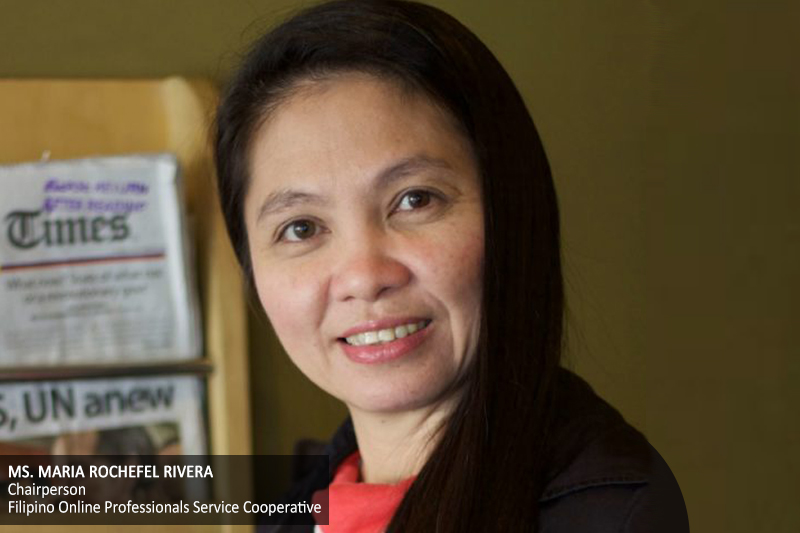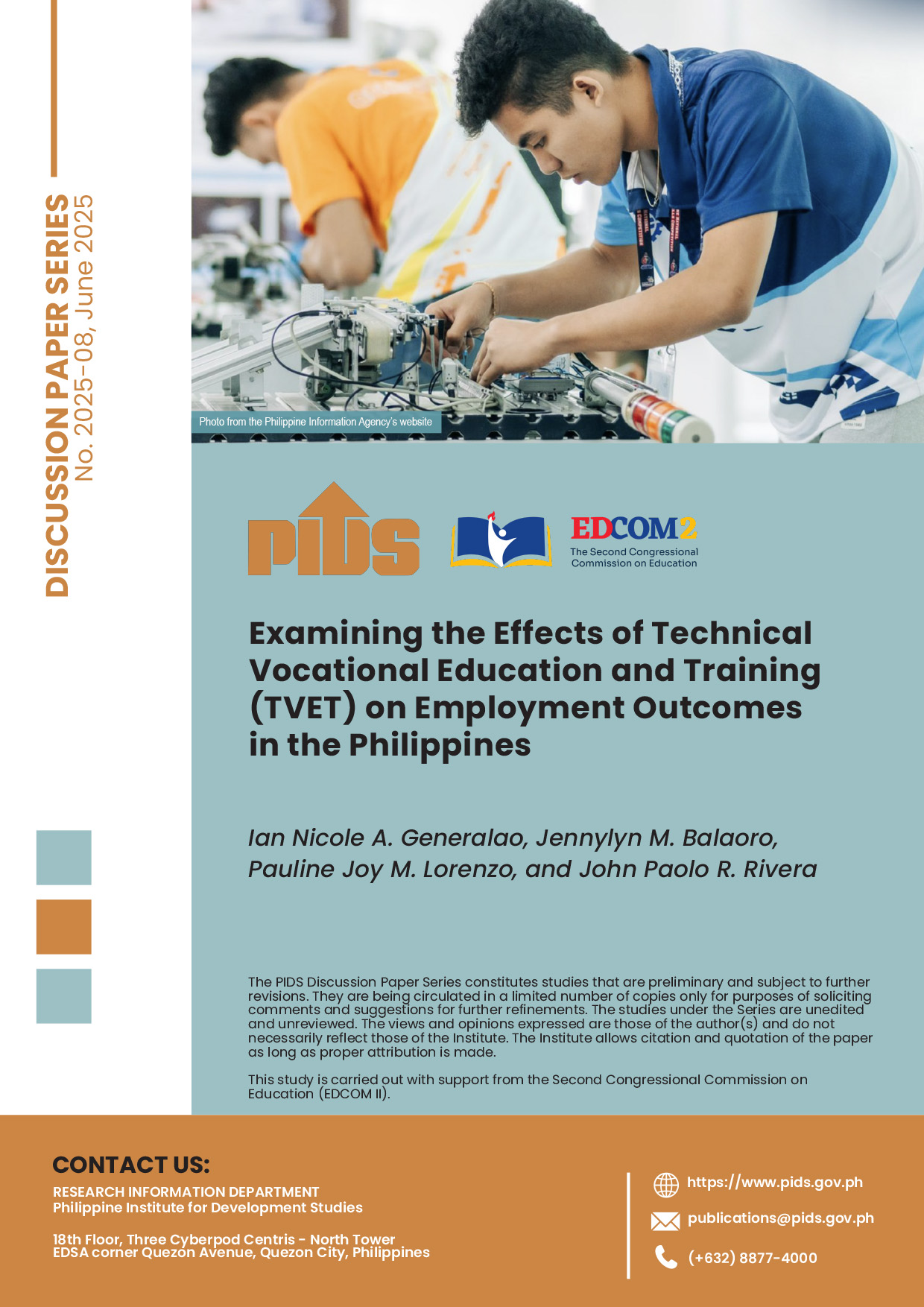
Filipino online professionals need to be provided with continuous education and training, according to Filipino Online Professionals Service Cooperative (FOPSCo) Chairperson Rochefel Rivera.
As a discussant in a webinar on crowdwork jointly organized by state think tank Philippine Institute for Development Studies (PIDS) and the International Development Research Centre recently, Rivera provided recommendations on how the government can help online professionals in the country.
For one, she emphasized the need to use the term “online professionals” instead of “freelancers” when referring to people working in the online industry for better representation.
Rivera also pointed out that online professionals need to learn more skills and gain more confidence to succeed amid the increasing competition in the online industry. She urged online professionals, both beginners and skilled ones, to seek advice from different industry representatives, to be better informed about the online industry.
More importantly, Rivera said there is a need to support continuous education and upskilling programs and initiatives of the government for online professionals, such as the digitaljobsPH of the Department of Information and Communications Technology.
“The online industry is evolving every two to four weeks as new technologies are being introduced in the market… Policies should be in place to protect specifically those who are starting or in the entry level to benefit from digital platforms. However, policy creation should go hand-in-hand with education awareness [to inform the public] that there are government agencies and programs that are giving free training so that people [will] have a chance to be part of the online industry,” Rivera explained.
In terms of infrastructure, she urged the government to create an online system for registration and payment of dues” to encourage online professionals to “register their businesses”. She also emphasized the need to provide a faster and stable internet connection in the country.
In addition, Rivera likened online professionals to Overseas Filipino Workers (OFWs) due to the global nature of their work, saying that they “are also bringing dollars but [are] not going abroad and leaving [their families] behind”. Along this line, she recommended creating a law that will provide online professionals a welfare administration, similar to the Overseas Workers Welfare Administration, which aims to promote the rights and protect the welfare of OFWs.
“I hope this online industry will be well known within five to ten years [so that] everybody will have [an] equal opportunity to earn dollars from home so that no one will have to go abroad anymore and leave their families behind,” Rivera said.
Finally, she called for more support to online-based cooperatives that aim to help online professionals develop their livelihoods in the online industry.
“Our mission is to help fellow Filipino online professionals achieve a more sustainable livelihood in the online workspace by providing support through continuous education, marketing, mentoring, and leadership equipping,” Rivera explained.
You may watch the webinar at https://www.facebook.com/PIDS.PH/videos/185862710084573. For more videos of PIDS events, go to https://www.pids.gov.ph/videos.
As a discussant in a webinar on crowdwork jointly organized by state think tank Philippine Institute for Development Studies (PIDS) and the International Development Research Centre recently, Rivera provided recommendations on how the government can help online professionals in the country.
For one, she emphasized the need to use the term “online professionals” instead of “freelancers” when referring to people working in the online industry for better representation.
Rivera also pointed out that online professionals need to learn more skills and gain more confidence to succeed amid the increasing competition in the online industry. She urged online professionals, both beginners and skilled ones, to seek advice from different industry representatives, to be better informed about the online industry.
More importantly, Rivera said there is a need to support continuous education and upskilling programs and initiatives of the government for online professionals, such as the digitaljobsPH of the Department of Information and Communications Technology.
“The online industry is evolving every two to four weeks as new technologies are being introduced in the market… Policies should be in place to protect specifically those who are starting or in the entry level to benefit from digital platforms. However, policy creation should go hand-in-hand with education awareness [to inform the public] that there are government agencies and programs that are giving free training so that people [will] have a chance to be part of the online industry,” Rivera explained.
In terms of infrastructure, she urged the government to create an online system for registration and payment of dues” to encourage online professionals to “register their businesses”. She also emphasized the need to provide a faster and stable internet connection in the country.
In addition, Rivera likened online professionals to Overseas Filipino Workers (OFWs) due to the global nature of their work, saying that they “are also bringing dollars but [are] not going abroad and leaving [their families] behind”. Along this line, she recommended creating a law that will provide online professionals a welfare administration, similar to the Overseas Workers Welfare Administration, which aims to promote the rights and protect the welfare of OFWs.
“I hope this online industry will be well known within five to ten years [so that] everybody will have [an] equal opportunity to earn dollars from home so that no one will have to go abroad anymore and leave their families behind,” Rivera said.
Finally, she called for more support to online-based cooperatives that aim to help online professionals develop their livelihoods in the online industry.
“Our mission is to help fellow Filipino online professionals achieve a more sustainable livelihood in the online workspace by providing support through continuous education, marketing, mentoring, and leadership equipping,” Rivera explained.
You may watch the webinar at https://www.facebook.com/PIDS.PH/videos/185862710084573. For more videos of PIDS events, go to https://www.pids.gov.ph/videos.











